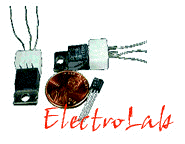






![]()
| F or decades before the arrival of the transistor, it was the
vacuum tube that formed an integral part of all electronic devices. In fact, it actually
performed the same functions as the transistor, acting as both a switch and an amplifier.
This might lead you to wonder why the transistor was regarded as such a revolutionary
breakthrough for the electronics industry. In truth, it was not what the transistor did,
but how it did it that made the transistor so vastly superior over the vacuum tube.
The transistor was the perfect replacement for the vacuum tube. They were not only cheaper, but also smaller, and more reliable. The invention of integrated circuit in 1958 allowed literally millions of transistors to be packed together on a single silicon chip, allowing components to work at lightening-fast pace. The better and more compact transistor also allowed for the invention of later electronic devices such as radios and hearing aids, revolutionising the electronics industry. Vacuum tubes have now been almost entirely replaced by the faster and more reliable transistors. Tubes still play an important role in certain applications, however, such as in power stages in radio and television transmitters, and in military equipment that must resist the voltage pulse (which destroys transistors) induced by an atmospheric nuclear explosion. Transistors vs Vacuum Tubes |
Transistor |
Vacuum Tube |
Inexpensive |
Expensive |
Excellent Reliability |
Very Unreliable |
Very Small |
Large and Bulky |
Stable Temperatures |
Get Hot Quickly |
Very Fast |
Slow |
Found in Large Numbers |
Found in small numbers |
Cannot carry very high voltage |
Can carry high voltage |